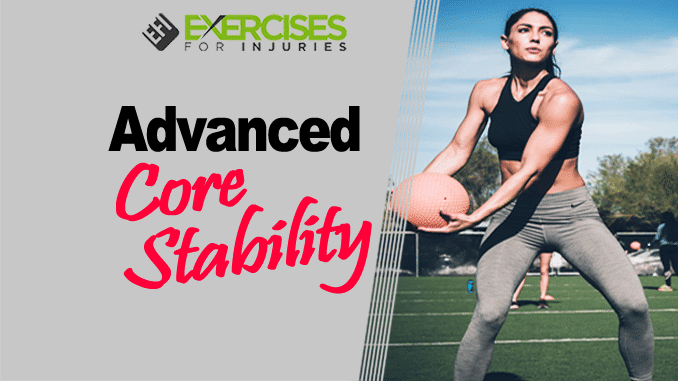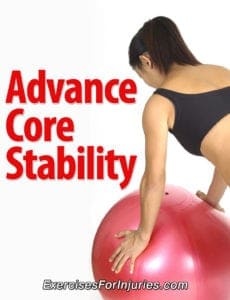
The really tricky thing to train is core stability. Most people associate it with stomach strength, which it isn’t. Rather, core stability is the ability to activate and brace your trunk muscles against destabilizing forces such as gravity or movement in another direction. This course will set you on the right track if you have ever suffered from back pain or weakness in your core. The internal oblique, transverse abdominis, multifidus, and other deeper muscles that form the body’s core are the muscles that must be trained if you desire to eliminate back pain and prevent future injuries. This course will help you strengthen your core so you can avoid re-injury!
What is stability?
Stability is the ability to keep a joint or joints in a fixed position while resisting forces that could try to move them in a different direction. It is also the ability to resist forces that could try to move the joints in the same direction. The core muscles are responsible for stabilizing the spine and pelvis in order to protect the joints. They also play a key role in the movement of the spine, pelvis, and hip joints. These muscles are responsible for the torque, or twisting action, that happens while rotating the spine.
Course Description:
Course Objectives:
- Advanced core stability exercises that utilize free weights, body weight, and balance.
- Advanced stability ball exercises that challenge the individual on various levels.
- How to use resistance equipment to provide options for traditional exercises.
- How to apply the exercises learned to specific case studies.
-
CONTINUING EDUCATION CREDITS: 4.0 BCRPA / 4.0 BCAK / 4.0 CMTBC / CSEP 4.0 PDC
- LOCATION: Douglas College (Royal Ave & 8th St) – New Westminster, BC
- ROOM: 1630
- DATES: Saturday, October 20, 2012 – 1:30 pm to 5:30 pm (4 contact hours)
** Please note, the next time this course will be offered is 2013 **
Course fee:
- $97 plus HST – pre-registration, before October 14
- $127 plus HST – late registration after October 15
- The course fee includes a comprehensive and detailed course manual.
About the Presenter:
Course Schedule:
- 8:45 am – 10:00 am
- 10:00 am-11:00 am
- 11:00 am – 11:15 am
- 11:15 am – 12:30 pm
- 12:30 pm – 1:15 pm
Other Courses Offered:
- Core Stability for the Rehab Client with Rick Kaselj – Saturday, October 20, 2012
- Core Stability of the Lower Back with Rick Kaselj – Sunday, October 21, 2012
- Core Stability of the Shoulder with Rick Kaselj – Sunday, October 21, 2012
For more details on other upcoming fitness education courses, CLICK HERE.
Rick Kaselj, MS
Conclusion
The Core Stability Course will enable you to strengthen your entire core so you can eliminate back pain and avoid re-injury. A more stable core will enable you to prevent injuries and have a better posture. Core muscles are crucial to daily activities such as lifting, walking, climbing stairs, and twisting. Maintaining good core strength is crucial in order to avoid injuries and improve performance. You must regularly exercise your core muscles to maintain good core strength.



